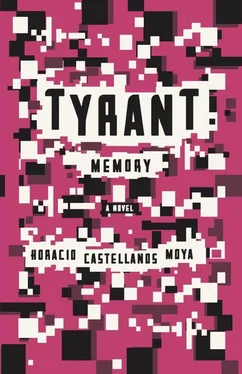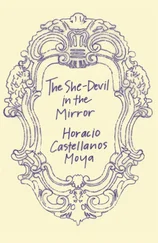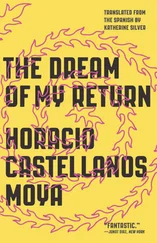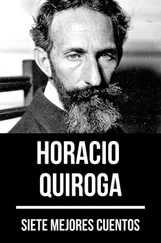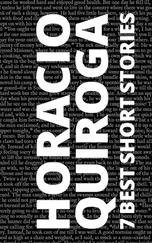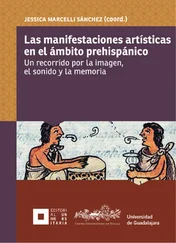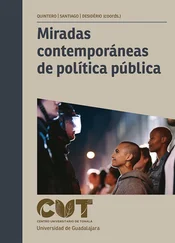Horacio Castellanos Moya
Tyrant Memory
To J.C.R.,
To whom I once gave a pipe
Would it be better if nothing remained of our lives, nothing at all? If death meant our instant obliteration in the minds of all who have had images of us? Would this be more considerate of those who follow? For it may well be that what remains of us constitutes a claim on them, a burden they are forced to carry. Perhaps human beings are not free because they contain too much of the dead and because this surplus refuses ever to be abolished.
— Elias Canetti, from The Agony of Flies
Part 1. Haydée and the Fugitives (1944)
Friday, March 24
It’s been a week since Pericles was arrested. I expected him to be released today, as has always occurred on previous occasions, when they let him come home after a week. But now the situation is different. Colonel Monterrosa told me as much, at noon today in his office, with a look of regret on his face because he respects Pericles: “I’m sorry, Doña Haydée, but the general’s orders are final: Don Pericles will remain under arrest until further notice.” I began to suspect that the general is angry or afraid about something else when, on that first day, I found out they hadn’t locked him up in the room next to Colonel Monterrosa’s office — he’s the chief of police — but instead had taken him to one of the cells in the basement; the colonel told me he was very sorry, but the decision to deal more firmly with Pericles had come straight from the top. During his previous imprisonments, my husband could receive visits from friends authorized by the colonel, and we always ate lunch and dinner together in that room, where I’d bring the food María Elena and I had prepared. Now, Pericles is isolated, and they allow him to come up to that other room only once a day, at lunchtime, to meet me. But I suppose I shouldn’t complain: Don Jorge’s situation and that of other political prisoners is much worse.
After speaking with Colonel Monterrosa, I returned home and called my father-in-law to ask if he knows why Pericles isn’t being released. My father-in-law told me the general has his reasons, and the best thing for me to do is bide my time. I did not insist. My father-in-law is a man of few words, loyal to his general, and Pericles’s articles criticizing the government upset him greatly; every time I’ve ever asked him why they arrested my husband, he answers simply that acts of disobedience cannot go unpunished.
Then I called my parents’ house to tell them the bad news. My mother asked me how Pericles is taking it. I told her he seemed to have been expecting it, his only remark being, “It appears the man is very frightened.” My husband never calls him “the general” or “Mr. President,” or “the Nazi warlock,” like my father and his friends do; he simply calls him “the man.” My mother asked me if Betito and I were going to come over for dinner. I said yes; the youngest is always the favorite grandchild.
Our neighbors came over for a visit this evening. The Alvarados expressed their regrets that Pericles had not been released, though they are very careful when it comes to discussing politics. Raúl is a doctor, but astronomy is his true passion; he has a telescope and whenever a special phenomenon is about to take place, which he always knows about, like a meteor shower, he invites Pericles to stay up with him to watch it. Rosita, his wife, brought me some women’s magazines she got from the Neighborhood Circle, a club sponsored by the American Embassy, of which they are members — I’d like to join but Pericles does not think very highly of it.
Saturday, March 25
I find relief from my solitude writing in this diary. It’s the first time since we were married that I have been separated from Pericles for more than a week. When I was a teenager I used to keep a diary, a dozen or so are stored away in my memory trunk; I used to spend days in my room reading one novel after another, lost in my own fantasy world. Then came marriage, children, responsibilities.
This morning, before my father left for his finca, we had a long conversation. I asked him if he could think of any way to pressure the general to release Pericles. He told me that in a few days the coffee-growers’ association would meet with the American ambassador, and he would present Pericles’s case as one more violation of freedom of the press, he said it wasn’t enough for the dictator to detain Pericles’s boss, Don Jorge, and to keep the Press Club closed since January, but now he has gone after the columnists. But he warned me that the Nazi warlock has gone off the deep end and doesn’t listen to anybody, “not even your father-in-law,” he told me. My father respects my father-in-law, even though sometimes he calls him “the cantankerous colonel,” and he doesn’t approve of his total obedience to the general.
At noon, I brought my husband books and tobacco. We ate in silence. I then talked to him about family matters; he told me he is weary of the lack of natural light, and the damp. I don’t like his pallor or that cough of his, which is becoming chronic. He repeated that “the man” feels besieged, trusts no one, otherwise he wouldn’t have consigned him to this basement cell, and wouldn’t keep him locked up.
Clemen dropped by this afternoon. He’s outraged that his father is still behind bars. I told him his grandfather has recommended patience, for there is nothing to be done at the moment. My eldest son is hot-blooded, imprudent; he was cursing the general, calling him “that little shitfaced dictator,” saying that nobody wants him anymore, he should step down and leave the country. I suggested he show some restraint with his words. He promised he would come for lunch tomorrow, Sunday, with his wife and children.
Later in the afternoon, Carmela came by, and we had a cup of coffee on the terrace; she is still my best friend, has been ever since high school. She brought a delicious lemon pie. She was very sorry to hear that Pericles had not been released, and she warned me that there are new rumors of a coup d’état.
A short while ago, just as I was sitting down to write, my sister Cecilia called. I told her about Pericles, but we soon started talking about the cross she bears, much weightier than mine: her husband, Armando, has become an inveterate alcoholic, and every time he gets drunk he turns aggressive, violent; he has never hit her, because he’s afraid of my father, but he always gets into serious trouble and ends up at that house of ill repute. They live in Santa Ana, the city where we were born and raised, where I married Pericles; it’s also where my grandfather’s old mansion is, which my father has turned into a coffee-processing plant.
Sunday, March 26
Patricia called from Costa Rica quite early this morning. I told her that her father was still in jail. There was a long silence. She is the most sensible of my three children, the one most like Pericles, the one who’s closest to him. She asked me how her father’s spirits were. I told him that his spirits aren’t a problem but his cough is. She told me her husband also has a bad cold. Patricia and Mauricio were married last December first in San José; such a lovely wedding. She asked me to call her the moment Pericles is released. My poor daughter: this is the first time she has been far away when her father is in jail.
Then I went to eight o’clock Mass, as I do every Sunday. I prayed for my husband to be released soon, even though he doesn’t believe in religion or want anything to do with priests — he has always respected my beliefs, as I respect his. On my way out of church, I stopped to chat with Carmela and some other friends. They invited me to accompany them to the Club, but I had several chores to do at home, particularly because María Elena has gone home to her village. One weekend a month she visits her family, at the foot of the volcano, near my father’s finca.
Читать дальше
